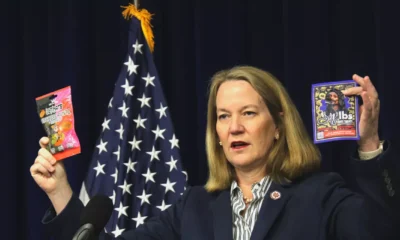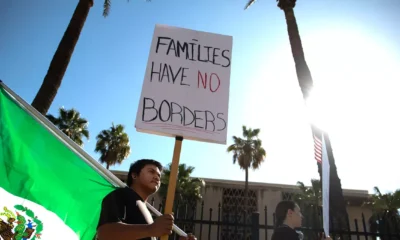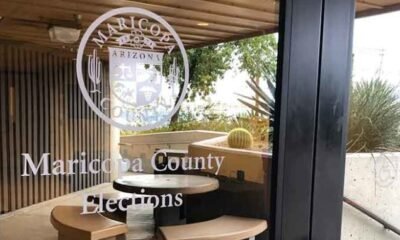arizona
Beto O’Rourke Declares: Arizona’s Youth Will Swing the Election!

Former U.S. Representative Beto O’Rourke visited the University of Arizona’s campus on Thursday to rally support for Democratic candidates ahead of the upcoming elections. His message to students centered on the significance of their participation in the electoral process.
“Young people have been overlooked and underestimated,” O’Rourke stated, urging students to engage. He expressed confidence that if they turnout in large numbers, it could lead to a Democratic victory.
Efforts from both Democratic and Republican parties aim to attract Arizona’s younger voters, many of whom will be voting for the first time. Nonetheless, historically, younger voters, particularly those under 25, show lower participation rates compared to older demographics. O’Rourke’s speech was part of a broader Democratic initiative to motivate students to vote.
“Democracy has been challenged over the last four years,” noted UA student Bella Stunkard, reflecting on the election’s climate. Many students present voiced their support for Vice President Kamala Harris, citing her character and policy positions as preferable to those of former President Donald Trump.
Issues surrounding women’s rights emerged as a key theme, especially in light of the Supreme Court’s decision to overturn Roe v. Wade. Student Dylan Friese articulated a personal connection to the topic, emphasizing the struggle of women to maintain reproductive rights.
O’Rourke highlighted the impact of Texas’ abortion laws, revealing troubling statistics about women forced to carry pregnancies resulting from rape. “Texas women are losing their lives at alarming rates,” he stated, pointing out the state’s maternal mortality crisis and the lack of accessible health care services.
Reflecting on his campaign experiences, O’Rourke lamented the barriers to voting in Texas due to suppression and intimidation tactics. He warned that the electoral stakes are high, positing that Arizona could play a crucial role in determining the national political landscape.
Many students expressed concerns regarding Trump’s leadership style, describing it as increasingly authoritarian. The January 6th Capitol insurrection was a focal point in these discussions, further fueling anxiety about his potential return to power.
“We don’t need a leader who acts like a dictator,” Friese asserted, underscoring his preference for Harris as a symbol of progress and inclusion for marginalized groups.
Some students pushed back against critiques of Harris, emphasizing her role as vice president. “It’s more symbolic than what people realize,” Stunkard remarked, urging her peers to look beyond individual personalities to grasp the broader implications of their votes.
O’Rourke defended Harris’ collaborative approach to immigration and economic policy, contrasting it with Trump’s rhetoric. He criticized Trump’s past actions, including notable incidents of cruelty documented during his administration.
Finally, O’Rourke underscored Harris’ focus on pressing economic issues, such as housing affordability. He asserted that her proposals are geared towards the needs of young voters and families, an area Trump has failed to adequately address.
Students echoed the imperative of their voices in shaping the future. “We are the next generation,” Friese concluded, highlighting the importance of informed voting among young people.


















